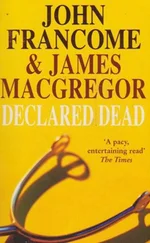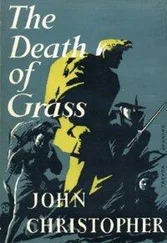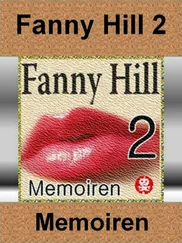“This discussion isn’t over,” Alverez said, poking his finger in my direction, but sounding less fierce.
My heart still racing, I forced myself to speak softly. “Was there anything else or are we done here?”
I watched as Alverez, his eyes pinning me with their intensity, took several deep breaths, then, sitting up straight, he turned to Max and spoke with his usual, even tone. His rage, for the moment, at least, was reined in. “As part of our investigation, we want to offer the Matisse for sale. Specifically, I’m hoping Josie will make a phone call, arrange a meeting, show off the painting, and negotiate a sales price.”
“With a suspect in a murder?” Max asked incredulously. “You’re asking Josie to do something illegal and put herself in harm’s way?”
“She’ll be in no danger.”
“How can you possibly know that? You’re making a target of her! Look what happened to Mr. Grant when he offered the Renoir for sale. If it’s such a good idea, why don’t you do it yourself? Don’t you ever go undercover?”
“Nothing personal,” Alverez said to me, “but I think it’s easier to believe that an antique dealer is a crook rather than a police chief.”
“Oh, please!” I said. “As if the news isn’t full of stories about corrupt cops!”
He shrugged. “It isn’t just that. It’s the likelihood of success. People who are desperate aren’t looking through a wide-angle lens. Their focus is strictly on their immediate needs and nothing else. Think about it-if you approach someone, the opportunity will be seen as heaven-sent. But if I do it, my job title will signal that it might be a trap.”
I understood his point. When you’re hungry, all you can think of is getting food. It’s only the affluent, people who know where their next meals are coming from, who think about organic ingredients and what they’re in the mood to eat.
“You don’t think people would be surprised if I offered to do something illegal?” I asked.
“No insult intended.”
“Sigh,” I said, sighing loudly for effect. “None taken.”
Alverez half smiled. “So, what do you think?”
“I think you’re crazy,” Max said, shaking his head, his tone righteous, gesturing his amazement. “I have no idea what you’re planning, but I can already hear the lawyers asking for the charges to be dismissed-entrapment.”
“I checked with Murphy. We’re clear.”
“Murphy? The ADA?” Max asked.
“Yes.”
“Who’s that?” I asked.
Max explained, “The assistant district attorney.”
“So, with no worry about complaints of entrapment, may I explain?”
Max sat back, his arms crossed across his chest. “All right,” he said, “but it’s extremely unlikely we’ll agree.”
“Understood. All I want is to catch the person I think is guilty of murder committing a lesser crime. Once arrested on a felony charge, I got ya. I can process you, fingerprint you, and interrogate you.” He opened his hands, palms up. “It’s simple. That’s what I want.”
Max looked at me. I thought for a moment of the courage it would take to do what I was being asked. I’d need to exude confidence and calm. I couldn’t start crying if I became frightened. I swallowed, knowing that I was still vulnerable to bouts of unexpected emotionalism. Yet, despite having seen me at weak moments, Alverez felt I could be trusted with this responsibility. His faith in me gave me faith in myself. If I could help Alverez, it would represent a quantum leap on my road to rebirth. And success breeds success. Plus, I could hear my mother. When in doubt, Josie, she always said, do the right thing .
“I’ll do it,” I said. I realized I was still gripping the chair as if it were my only support, and encouraged myself with my father’s oft-repeated words: Fake it ’til you make it. I hoped that if I didn’t admit to feeling fearful, the emotion would disappear, and I’d be strong and brave and resilient. I swallowed and smiled, adding, “I’m glad to help.”
“Wait,” Max interjected. “I’m going to draft a letter for you to sign indicating you asked for Josie’s help and are appreciative of it. Just in case.”
“I’ll bring in Cathy now and you can dictate it,” Alverez said. “That way it will be on official letterhead.” He turned to me. “It’ll be easy to write, because it’s one hundred percent true.”
I smiled and, embarrassed, whispered, “Thank you.”
We spent so long going over the plan that I was almost late for my 2:00 appointment with the couple who were downsizing to a condo on the pond. Mostly Max sat still, observant, but without comment.
Alverez sent out for sandwiches around noon, and we kept working as we ate, detailing whom he suspected, what I needed to do and say, and how we’d arrange the logistics, including such important factors as telling Fred and Sasha they couldn’t work late in the office tonight after all.
Keeping the warehouse empty would allow Alverez’s team to set up the hidden microphones and cameras, determine where we should position the locked cabinet that the police department would provide to store the Matisse, and with any luck, execute the sting. It felt oddly natural to plan the lies I’d tell, and I felt increasingly confident that I would be able to do exactly as Alverez wanted. I began to think that I’d missed my calling. Maybe, I thought, I should have been a con woman.
At about 1:15, Alverez finished up by saying, “That’s it. If you can get those points in, we’ll do the rest.”
“I can do it,” I told him.
He walked us to the parking lot and thanked me again. “Are you okay with everything?” he asked.
“Yes,” I said, with more self-assurance than I felt. “But it’ll be good when it’s over.”
By keeping my apprehension to myself, and acting as if I had no doubts that I’d succeed, both Max and Alverez seemed to gain additional buoyancy themselves. As I drove away, alone and free to release the pent-up anxiety I’d kept in check all morning, I acknowledged that their sublime confidence ratcheted up the burden on me to perform. I didn’t want to let them down. I gave myself a pep talk as I drove, and mostly I believed it.
Walking into the big Colonial in Durham, I wondered what it would feel like to be leaving a home like this. Was this couple feeling sad? Or liberated? The house was a suburban American dream-freshly painted, beautifully landscaped-and it exuded serenity and contentment.
Taking a deep breath, I readied myself to work. I wanted to be with Max and Alverez preparing for my role, not surveying goods for sale. Still, since I couldn’t be with them, I was glad for the need to focus on something besides the challenge that awaited me.
It took me an hour to list the items the owners intended to sell. It was complicated because their selections weren’t uniform. They wanted to get rid of the sofa, for instance, but not the matching club chairs, all of the chests of drawers, but none of the beds, and certain knickknacks, but not most of them.
The only valuable items they were offering for sale were a collection of hand-carved wooden decoys, a nineteenth-century dollhouse, and a small Navaho rug. I offered $1,200 for the lot, and was accepted on the spot, making me wonder if I’d bid too high.
I had them initial each of the inventory pages I’d written out, and sign at the bottom that we could pick up these items first thing in the morning.
On the way back to the warehouse, I called Gretchen, and asked, “Anything going on?”
“Just a lot of stuff. Two more callbacks about selling household goods, and an inquiry about auctioning some stamps.”
Читать дальше












